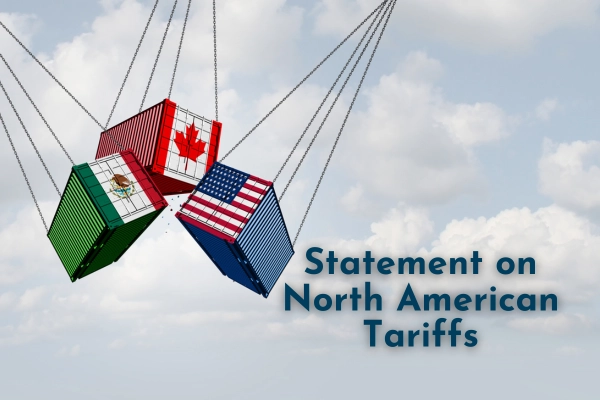October 2, 2023
October 2, 2023

The future of American energy appears bright, as our nation’s leaders prioritize the United States’s ability to manufacture and mine the materials that support renewable energy generation. Congress and the White House have invested more than $370 billion in the clean energy industry since 2021, in an effort to bolster the nation’s transition to cleaner energy and further establish our energy independence.
So, why is the federal government setting up roadblocks for American companies that are helping to facilitate the renewable energy transformation?
It is an especially crucial issue for companies in the Essential Minerals Association, which I lead.
Renewable energy production and storage rely on essential minerals, including lithium, soda ash, high-quality quartz, rare earth elements, antimony, phosphate, niobium and silver. These resources are fundamental to clean energy, heat management, and carbon capture technologies. The amount of minerals required for each new unit of power generation capacity has increased by 50 percent since 2010, according to an International Energy Agency report.
Companies across the country are striving to produce these minerals, but their ability to do so is at the mercy of the Biden administration, whose regulations are, in fact, hindering the nation’s clean energy goals.
This year, the Environmental Protection Agency and Army Corps of Engineers finalized a regulation, called Waters of the United States (WOTUS), which redefines the waters that are regulated under the Clean Water Act. The rule gave federal agencies overreaching power on private lands, even going so far as to regulate dry land that rarely holds water. Worse, the agencies proceeded to finalize the regulation while its very basis was being challenged in a case before the Supreme Court.
Essential mineral producers and processors are committed to protecting clean water, which is vital to extracting and processing the raw minerals used in products Americans need every day. Many producers and processors have been recognized by federal agencies for their stewardship and conservation efforts. But the 2023 WOTUS rule created endless red tape and costly permitting delays that threaten our industry’s ability to deliver these essential minerals.
The flawed regulation was rebuked, over and over, for its extreme overreach. A bipartisan majority of Congress voted to overturn it, 27 states filed lawsuits against it, and three federal courts chose to halt the rule in more than half of states. Finally, in May, the Supreme Court unanimously overturned much of the WOTUS regulation in Sackett v. Environmental Protection Agency..
Last month, the federal government attempted to bring the WOTUS rule into compliance with the Supreme Court’s decision. Yet the agencies chose to remove only isolated parts of the rule and doubled down on its broad and illegal definitions. Once again, the federal government has failed to bring clarity to our nation’s mineral producers and processors.
America’s future in clean energy depends upon federal agencies working with, not against, the mineral companies that are helping to power the renewable energy transition. We are capable of harvesting and delivering the essential minerals needed for a domestic renewable energy revolution. But if the federal government continues to stand in our way, our country instead will be forced to rely on overseas sources, such as China and Russia, who are known for their poor environmental and human and labor rights records. This will lead to worse outcomes for the environment, worker health and safety, and our national and economic security.
If we truly want to power America with clean, domestically-produced energy, the entire federal government must ensure that policies — including the WOTUS rule — allow us to actually produce and process the minerals that make cleaner energy possible. Protecting clean water and producing clean energy do not have to be at odds with each other. The government must stop getting in the way and start being a part of the solution.
Chris Greissing is president of the Essential Minerals Association, which represents companies that produce essential minerals for every part of the economy.

May 22, 2025

January 31, 2025

January 20, 2025